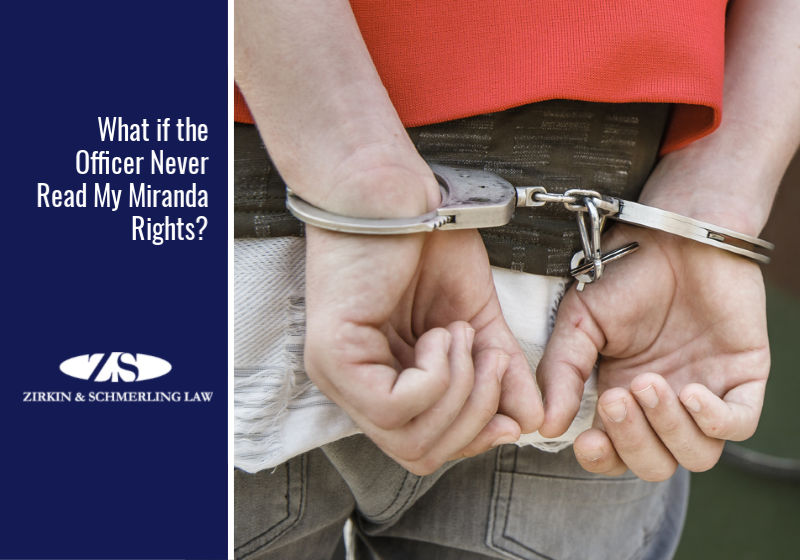
After being questioned by the police, it might dawn on you that the officer never read your Miranda rights. Most people are at least vaguely aware of these rights because they’ve seen a TV cop arrest someone and say, “You have a right to remain silent …”
But what does it really mean if the officer never read your Miranda rights? Does it mean your rights were violated? And are you positive they didn’t actually read you your rights?
Maybe You Misunderstood Your Miranda Rights
First, let’s take a moment to clarify what your Miranda rights are. The Miranda rights are named after Ernesto Miranda, who confessed to kidnapping and rape in 1963 after voluntarily going to a police precinct and being placed in custody. Miranda did not realize he could have remained silent to avoid incriminating himself and could have requested the help of a lawyer.
The U.S. Supreme Court overturned Miranda’s conviction and ruled that people in police custody should be cautioned about their rights before speaking. Thus, the Miranda warning was born:
You have a right to remain silent. Anything you say can and will be used against you. You have a right to an attorney. If you cannot afford one, one will be provided to you.
Here’s what many people misunderstand about the Miranda warning: It’s not a long list of rights. It’s just four sentences long. Because TV cop shows often cut to another scene during the reading of the Miranda rights, you may be left with the impression that there’s much more to it.
But as you can see, it takes just a few seconds to say your Miranda rights. If an officer blurts them out quickly, you might be too distracted to really pay attention during the stress of an arrest. That’s why your attorney might ask you, “Are you sure they didn’t read you your rights?”
Know Your Situation and Know Your Options
It’s also important to establish the difference between being questioned by an officer and being under arrest. If an officer simply asks you a question about the weather as you happen to be walking by, they are under no obligation to provide any type of legal caution.
Your Miranda rights come into play when you are in custody. If the officer wants to ask you questions that could lead to incriminating answers, it is at this point that the officer must first warn you that it is your right to remain silent and that anything you say could be used against you later. They must also give you an opportunity to request a lawyer.
If you remained silent the entire time, the officer may not have ever read your Miranda rights. However, this does not mean your rights were violated. Because you never spoke, the officer never cautioned you, and although it may seem counterintuitive, this is perfectly legal.
Should You Remain Silent? Probably.
You might be wondering whether it’s a good idea to stay silent instead of talking to the police. When in doubt, remain silent and avoid saying something that could come back to haunt you later. Your words could cost you your freedom.
The best advice is to not speak to the police – or anyone else, including your family – before consulting with a criminal defense attorney. Your attorney will help you determine whether speaking with the police is in your best interest or not. Working together, you and your attorney can decide on the best path forward.
Have a Legal Question About Your Miranda Rights? We Have Answers
When you need to learn more about your rights, the attorneys at Zirkin and Schmerling Law can help. Contact us or call us at 410-753-4611 to set up an appointment with one of our experienced criminal defense lawyers today.
